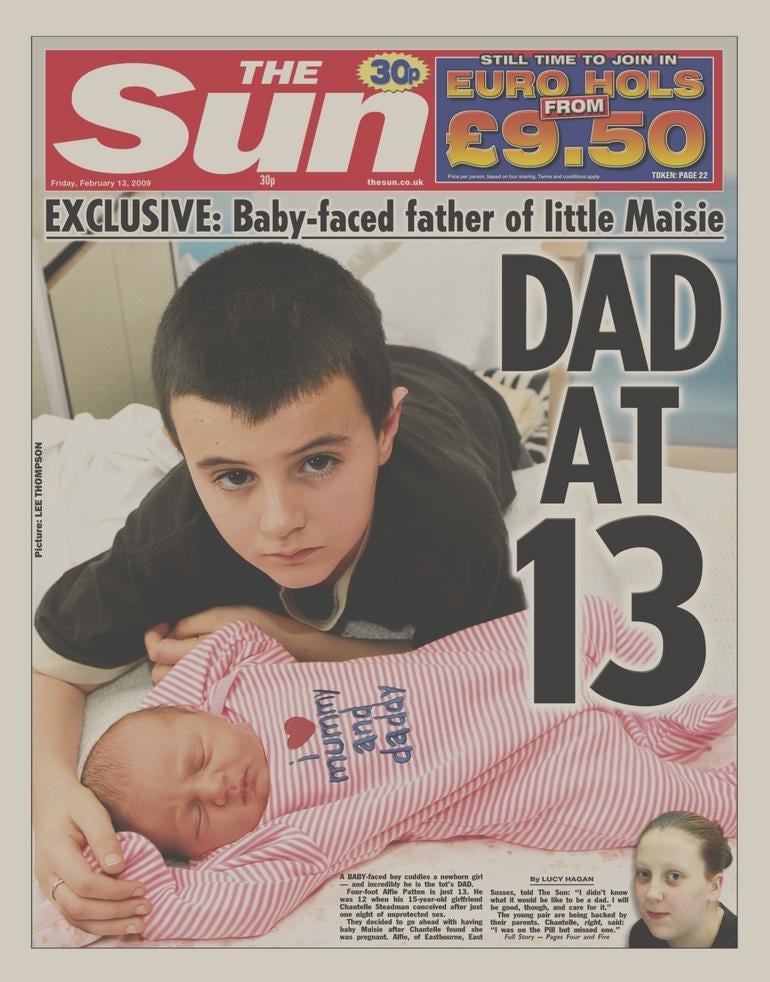
The high court has lifted a reporting ban on the DNA test results of “dad at 13” Alfie Patten – allowing today’s newspapers to reveal that he is not the father of a baby girl.
The Sun ran a front-page splash on 13 February claiming Patten, from Hailsham in East Sussex, had fathered newborn Maisie with his 15-year-old girlfriend Chantelle Stedman.
The teenagers were thrust into the media spotlight, four days after Stedman had given birth, prompting child protection officers at East Sussex county council to obtain a reporting restriction order.
A DNA test in March revealed that Patten was not the child’s father – which can now be reported – although the rest of the injunction remains in place for two years.
Shortly before the reporting restrictions were imposed, East Sussex county council told Press Gazette it had “serious concern” about the level of media interest in Patten and Stedman.
It said their privacy had been disrupted to such an extent that they were unable to lead a normal family life, and said Patten needed to be able to return to school.
Reporters were told that the restrictions had arisen “as a result of press intrusion” and also “because of allegations made by at least two others that they may be the putative fathers”.
According to reports, DNA tests have now revealed that 15-year-old Tyler Barker is the biological father of baby Maisie.
The Press Complaints Commission is still investigating claims that The Sun and The People paid for interviews with Patten.
The Sun claimed record web traffic from the story, with 8.8 million unique users to the site in a week and 1.2 million unique viewers watching a video interview.
Clause 6.4 of the editors’ code of practice states: “Minors must not be paid for material involving children’s welfare, nor parents or guardians for material about their children or wards, unless it is clearly in the child’s interests”.
Newspapers are allowed to breach this rule if there is a demonstrable public interest in publishing the story.
The PCC investigation was launched by the organisation under its own volition and was not the result of a specific complaint.
Email pged@pressgazette.co.uk to point out mistakes, provide story tips or send in a letter for publication on our "Letters Page" blog
